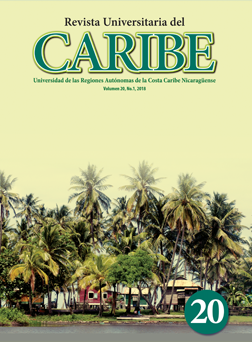Experiencia del CEIMM en Las Minas: Acompañamiento a las mujeres en los territorios indígenas
Resumen
Este artículo describe cómo se desarrolló el proceso de acompañamiento en los territorios indígenas, fundamentalmente el trabajo con las mujeres, las principales dificultades, alcances y desafíos. Acompañamiento comunitario que la Universidad de las Regiones Autónomas de la Costa Caribe Nicaragüense (URACCAN), a través del Centro de Estudio e Información de la Mujer Multiétnica (CEIMM), ha brindado en la búsqueda de promover cambios de actitudes con relación a la práctica de relaciones equitativas de género, fortalecimiento de la organización, el liderazgo, autonomía de las mujeres y los pueblos, esto accede a la convivencia comunitaria, la conservación de los recursos naturales, promoción de la incidencia en las políticas públicas y el diálogo intercultural. Así mismo, facilitar la comunicación y confianza comunitaria, con autoridades municipales, regionales o nacionales para el empoderamiento de los pueblos y de las mujeres. Una de las situaciones que preocupa es la poca participación activa de las mujeres en los diferentes procesos de desarrollo de las comunidades indígenas ya que, por historia, no existe un reconocimiento de sus capacidades.






